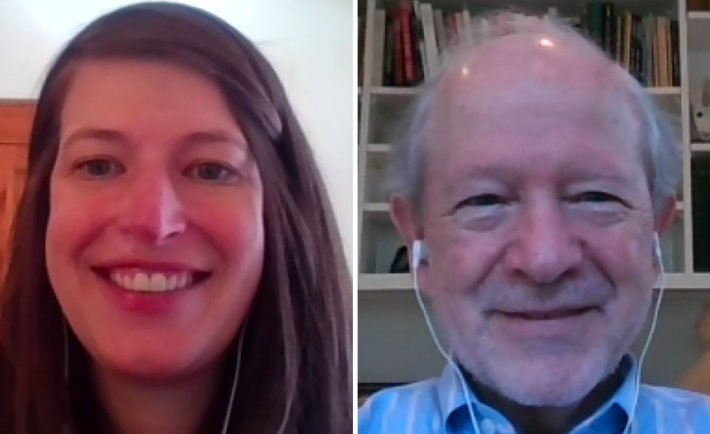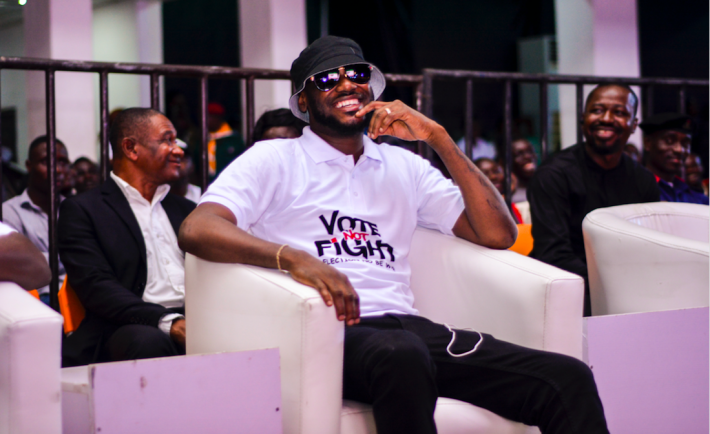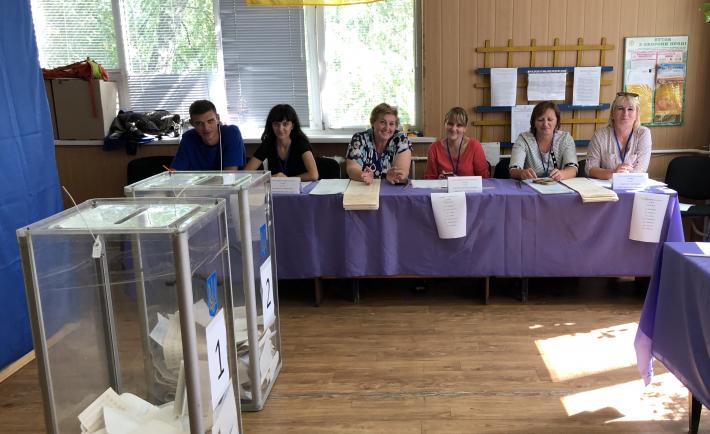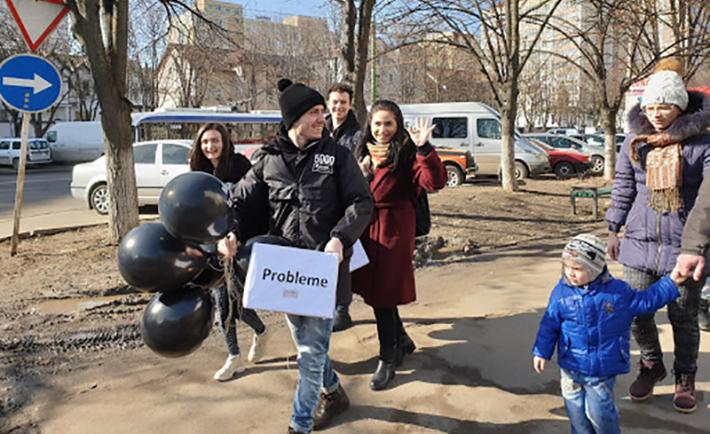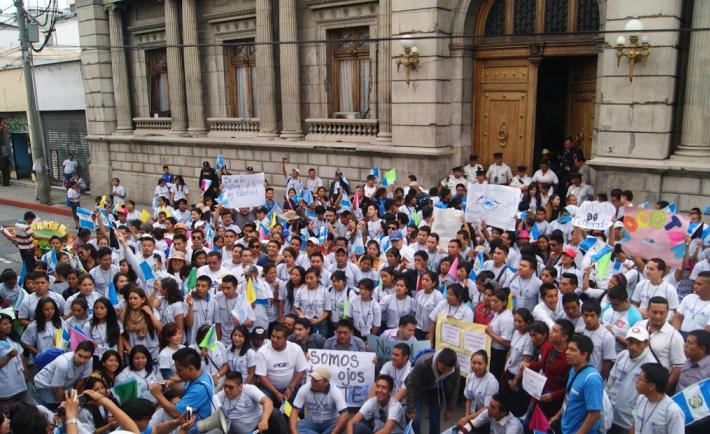Many countries with scheduled elections this year face a difficult choice in the midst of the COVID-19 pandemic: how to balance public health considerations with holding a free and fair election. Learn more from NDI Senior Associate and Director of Electoral Programs Pat Merloe and Program Director Julia Brothers as they talk about democratic back-sliding during this crisis, electoral integrity, and ways civil society organizations can still make a difference.
Demworks: Pat Merloe and Julia Brothers on Elections During COVID
How One Musician Has Used His Voice to Empower Youth in Nigeria During Elections
Election-related violence is a major challenge that Nigeria has been grappling with for a while now. Election related deaths have robbed many citizens of their lives, particularly youth, who have played dual roles as perpetrators and victims.
What is the civic responsibility of social media platforms to combat disinformation in Ukraine?
In this episode of the DemWorks podcast, Michelle Brown, senior advisor for elections at NDI talks to NDI analyst Calvin Garner about Ukraine’s recent parliamentary elections. They discuss how advances in digital communications impact pivotal elections.
Being the Change: Moldovan Youth and the 2019 Parliamentary Election
“What is the local issue most important to you?”
“What is the national issue most important to you?”
“What qualities are you looking for in your member of parliament?”
From Election Observation to Government Oversight: What’s Next for Guatemala?
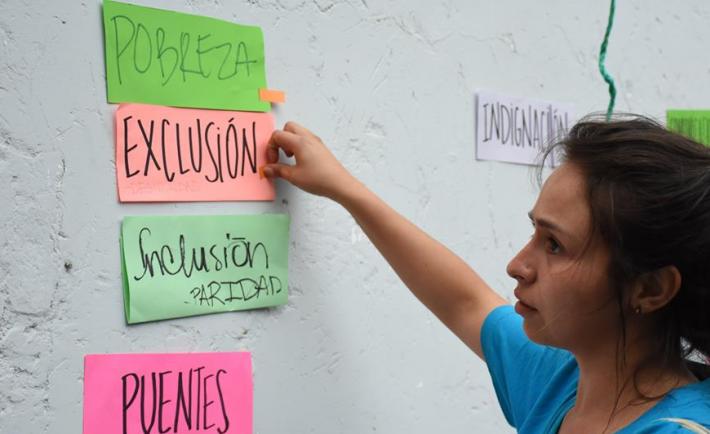
A young Guatemalan woman participates in an activity organized by civil society to reflect on the political crisis and future priorities. Credit: Pamela Saravia
As this blog series has highlighted, the 2015 Guatemalan elections were unique in many regards. Citizen protests resulted in the resignation and arrest of the president and vice president on corruption charges. Voter turnout was the highest since the return to democracy in Guatemala. The presumptive winner, the runner-up in elections four years earlier who was leading in the polls, failed to make it to the second round. And electoral violence was lower than expected and lower than during recent electoral processes. The question then becomes, what’s next for Guatemala?
The Role of Citizens in Democracy

Having just voted for the presidential elections in July 2014, voters in Jakarta’s Senin district show their inked fingers. Photo by Telibert Laoc
Sovereignty resides in and flows from the people of a country. They have a collective right to choose their governmental, political and electoral systems as an aspect of self-determination. The authority of government derives from the will of the people in their choice of these systems, and the people have a right to take part in their government – including through genuine elections to determine who is to legitimately occupy governmental offices.
Not Just Observation, Guatemala Election Monitoring Opens Doors to Dialogue and Civic Education
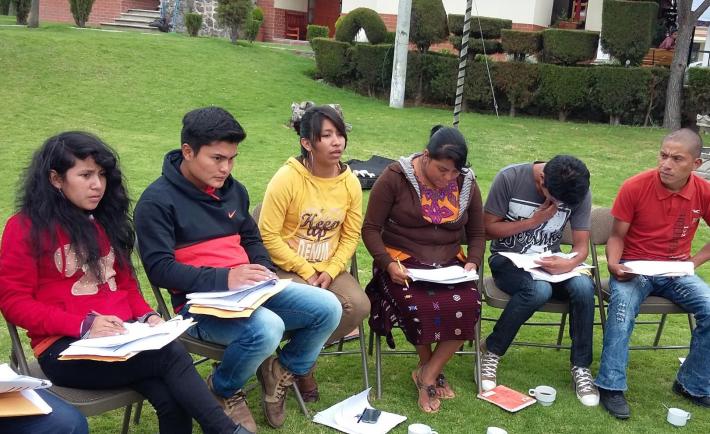
Milvia Roxana Lopez (third from left) speaks during a training for citizen election observers in Guatemala. “Self-confidence was key,” she said, referring to her ability to break through gender-based stereotypes as an election observer documenting incidents of violence and educating voters during last year’s historic elections.
At 25 years old, Milvia Roxana López, an indigenous woman, may be diminutive in size but she exudes a confidence that demands she be heard. As an observer who monitored electoral violence, Milvia met with leaders from her town and surrounding communities to document acts of electoral violence -- not an easy topic to broach in country that has one of the highest homicide rates in the world. “For me, self-confidence was key,” declared Milvia, referring to her role as an election observer. “To many people, it’s not the same when a woman says something as when a man says something. I don’t know where I got the strength, but I did it.”
Welcome to Voices from Guatemala
Since the Guatemalan elections concluded in October 2015, NDI has held conversations with local partner organizations and election observers to better understand their experiences, as well as their hopes for their communities and the country. In order to highlight their voices, we will post a series of blogs documenting stories of inclusion and change -- the people behind the headlines working to build a strong democracy in Guatemala.
Venezuela, Burma, Burkina Faso: Connect the Democratic Dots…

A Burmese anti-government protest in front of the Petronas Twin Towers. Photo credit: Off2riorob CC BY
In the four weeks between November 8 and December 6, 2015, the peoples of Myanmar (Burma), Burkina Faso and Venezuela delivered surprises: resounding defeats to military rule, strongman domination and populist authoritarianism. These bright spots are the consequence of perseverance by democratic activists in the face of repression. They also highlight the importance of elections as a peaceful means for people to bring about change.
Burkina Faso: the Day After Presidential Elections
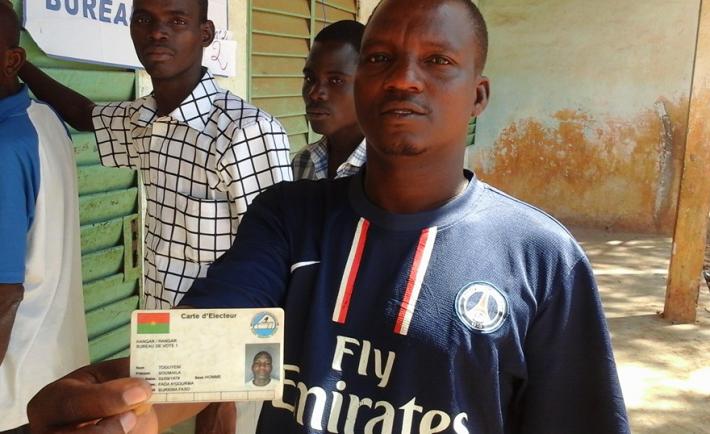
A voter in Burkina Faso displays his ID card. Many observers have described the recent election as ‟the freest and fairest" in the country’s history.
In the past week, the people of Burkina Faso again surprised many Africa watchers – the third time in 15 months – by holding what many observers have described as ‟the freest and fairest" elections in the country’s history.

